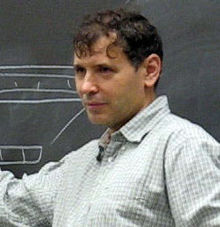
Stephen Arthur Cook is an American-Canadian computer scientist and mathematician who has made significant contributions to the fields of complexity theory and proof complexity. He is a university professor emeritus at the University of Toronto, Department of Computer Science and Department of Mathematics.
The Gödel Prize is an annual prize for outstanding papers in the area of theoretical computer science, given jointly by the European Association for Theoretical Computer Science (EATCS) and the Association for Computing Machinery Special Interest Group on Algorithms and Computational Theory. The award is named in honor of Kurt Gödel. Gödel's connection to theoretical computer science is that he was the first to mention the "P versus NP" question, in a 1956 letter to John von Neumann in which Gödel asked whether a certain NP-complete problem could be solved in quadratic or linear time.
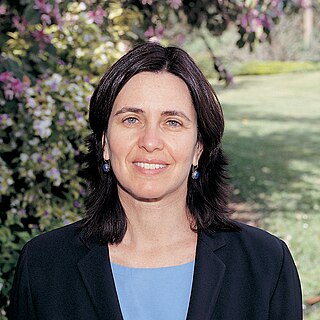
Shafrira Goldwasser is an Israeli-American computer scientist and winner of the Turing Award in 2012. She is the RSA Professor of Electrical Engineering and Computer Science at Massachusetts Institute of Technology; a professor of mathematical sciences at the Weizmann Institute of Science, Israel; the director of the Simons Institute for the Theory of Computing at the University of California, Berkeley; and co-founder and chief scientist of Duality Technologies.
Johan Torkel Håstad is a Swedish theoretical computer scientist most known for his work on computational complexity theory. He was the recipient of the Gödel Prize in 1994 and 2011 and the ACM Doctoral Dissertation Award in 1986, among other prizes. He has been a professor in theoretical computer science at KTH Royal Institute of Technology in Stockholm, Sweden since 1988, becoming a full professor in 1992. He is a member of the Royal Swedish Academy of Sciences since 2001.
Steven Rudich (born October 4, 1961) is a professor in the Carnegie Mellon School of Computer Science. In 1994, he and Alexander Razborov proved that a large class of combinatorial arguments, dubbed natural proofs, was unlikely to answer many of the important problems in computational complexity theory. For this work, they were awarded the Gödel Prize in 2007. He also co-authored a paper demonstrating that all currently known NP-complete problems remain NP-complete even under AC0 or NC0 reductions.
Neeraj Kayal is an Indian computer scientist and mathematician noted for development of the AKS primality test, along with Manindra Agrawal and Nitin Saxena. Kayal was born and raised in Guwahati, India.

Nitin Saxena is an Indian scientist in mathematics and theoretical computer science. His research focuses on computational complexity.
In computational complexity theory, the PCP theorem states that every decision problem in the NP complexity class has probabilistically checkable proofs of constant query complexity and logarithmic randomness complexity.
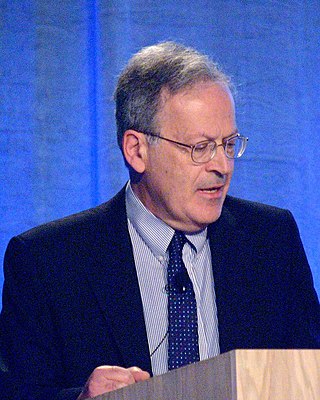
Leslie Gabriel Valiant is a British American computer scientist and computational theorist. He was born to a chemical engineer father and a translator mother. He is currently the T. Jefferson Coolidge Professor of Computer Science and Applied Mathematics at Harvard University. Valiant was awarded the Turing Award in 2010, having been described by the A.C.M. as a heroic figure in theoretical computer science and a role model for his courage and creativity in addressing some of the deepest unsolved problems in science; in particular for his "striking combination of depth and breadth".

Christos Charilaos Papadimitriou is a Greek theoretical computer scientist and the Donovan Family Professor of Computer Science at Columbia University.
Aleksandr Aleksandrovich Razborov, sometimes known as Sasha Razborov, is a Soviet and Russian mathematician and computational theorist. He is Andrew McLeish Distinguished Service Professor at the University of Chicago.
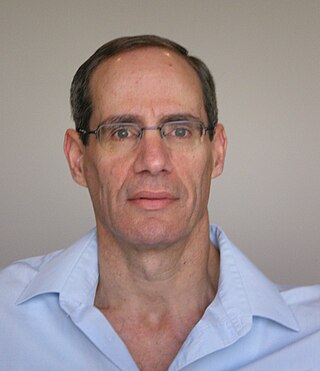
Noga Alon is an Israeli mathematician and a professor of mathematics at Princeton University noted for his contributions to combinatorics and theoretical computer science, having authored hundreds of papers.

Avi Wigderson is an Israeli mathematician and computer scientist. He is the Herbert H. Maass Professor in the school of mathematics at the Institute for Advanced Study in Princeton, New Jersey, United States of America. His research interests include complexity theory, parallel algorithms, graph theory, cryptography, distributed computing, and neural networks. Wigderson received the Abel Prize in 2021 for his work in theoretical computer science.
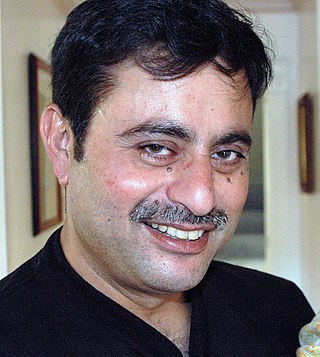
Rajeev Motwani was an Indian American professor of Computer Science at Stanford University whose research focused on theoretical computer science. He was a special advisor to Sequoia Capital. He was a winner of the Gödel Prize in 2001.
Carsten Lund is a Danish-born theoretical computer scientist, currently working at AT&T Labs in Bedminster, New Jersey, United States.

Salil Vadhan is an American computer scientist. He is Vicky Joseph Professor of Computer Science and Applied Mathematics at Harvard University. After completing his undergraduate degree in Mathematics and Computer Science at Harvard in 1995, he obtained his PhD in Applied Mathematics from Massachusetts Institute of Technology in 1999, where his advisor was Shafi Goldwasser. His research centers around the interface between computational complexity theory and cryptography. He focuses on the topics of pseudorandomness and zero-knowledge proofs. His work on the zig-zag product, with Omer Reingold and Avi Wigderson, was awarded the 2009 Gödel Prize.
Lance Jeremy Fortnow is a computer scientist known for major results in computational complexity and interactive proof systems. As of January 2024, he was the Dean of the College of Computing at the Illinois Institute of Technology.

Rodney Graham Downey is a New Zealand and Australian mathematician and computer scientist, an emeritus professor in the School of Mathematics and Statistics at Victoria University of Wellington in New Zealand. He is known for his work in mathematical logic and computational complexity theory, and in particular for founding the field of parameterised complexity together with Michael Fellows.
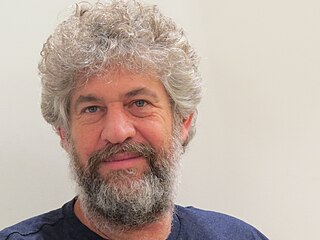
Noam Nisan is an Israeli computer scientist, a professor of computer science at the Hebrew University of Jerusalem. He is known for his research in computational complexity theory and algorithmic game theory.
Jin-Yi Cai is a Chinese American mathematician and computer scientist. He is a professor of computer science, and also the Steenbock Professor of Mathematical Sciences at the University of Wisconsin–Madison. His research is in theoretical computer science, especially computational complexity theory. In recent years he has concentrated on the classification of computational counting problems, especially counting graph homomorphisms, counting constraint satisfaction problems, and Holant problems as related to holographic algorithms.
